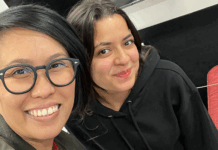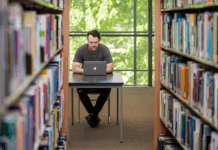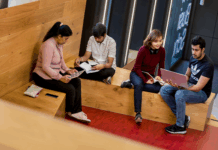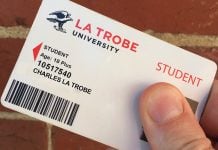La Trobe’s Peer Learning Advisors (PLAs) are high-achieving students who have been specially trained to help others with study and assessments. Go to the Library Learning Services to find out more about the PLAs and access the Zoom drop-in service.
With exams on the horizon, it’s important to make the most of the study time you have available. Our PLAs have shared their ultimate revision tips so you can be at the top of your game!
1. Be strategic
Samantha: Go through the topics for your subject and evaluate how confident you feel about the content. Were some topics easier than others? Find the trickiest topic and start from there. I like to make summaries from lectures, and then summarise those summaries, to really get down to the nitty-gritty need-to-know content for each week.
2. Make your learning active
Jacqulyn: Re-reading lecture notes only gets you so far, as it is passive. To actively engage with the content, you generally need to be transforming it in some way. The approach I use is through mind mapping on a big piece of paper. Or you can make questions out of your notes and quiz yourself.
Hammad: Without looking at any resources, tackle practice questions to determine your strengths and weaknesses. Review and work on weaknesses by watching videos on the topic, organising a consult with your lecturer or tutor, or analysing sample questions and answers. Then try another practice exam and see how you fare.
3. Say it out loud
Emily: I find that creating a study group with your friends can be beneficial, as it is easier to understand concepts when trying to explain them to another student.
Amy: If I’m stuck on a topic, I try to explain it to myself and sort of argue internally (or externally) until it makes sense. Using humorous mnemonic devices also helps! Come up with an acronym for a concept that is so ridiculous that you can’t get it out of your head.
4. Create space to focus
Tenzin: Remove all distractions by going to campus and studying using a Library computer. If you can’t make the commute, set a time in the morning or afternoon for the things that might distract you — such as laundry, cleaning, or paying bills. Plan your study time, then take care of everything else first.
Jacqulyn: Knowing at what time in the day you work best is helpful for getting stuff done. If you are tired or not feeling it then you are more inclined to procrastinate.
5. Prioritise self-care
Srishti: Make sure you balance your time between uni, social life, and work. Plotting everything on an online calendar like Outlook to organise your time can be very useful.
Margaret: Keep yourself fit and active leading up to the exam period by exercising, meditating, and eating lots of healthy foods. Get heaps of sleep to ensure your brain is ready every morning for a brand-new day of study!
Amy: Try to be kind to yourself. Let yourself keep doing the things you love to do. If you need help, always reach out. There are resources available to you at the university so please use them if you need to.
Library Learning Services workshops
For more study and assessment tips, browse our full series of end-of-semester workshops on the Library Learning Services events page.
Photo: Margaret, PLA














